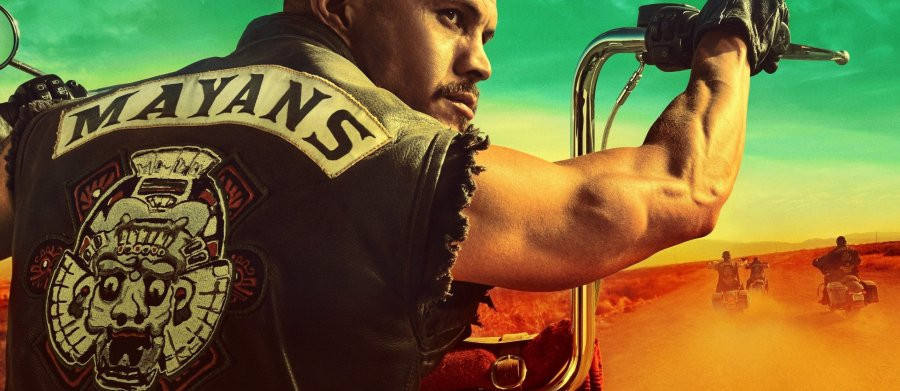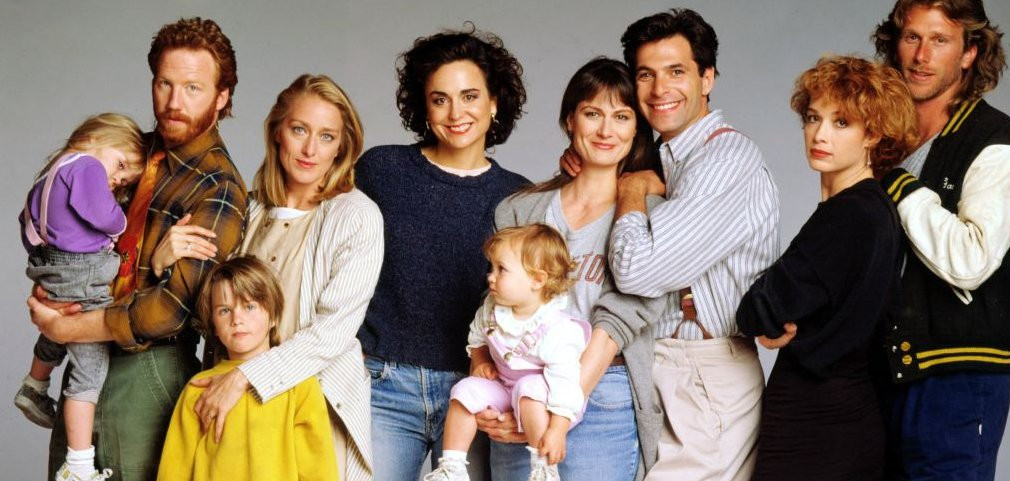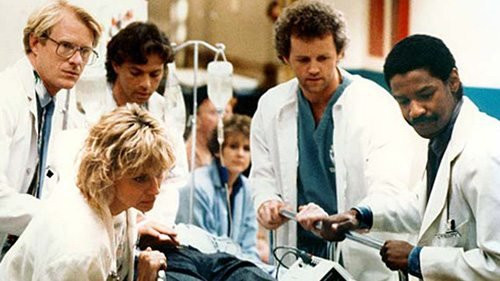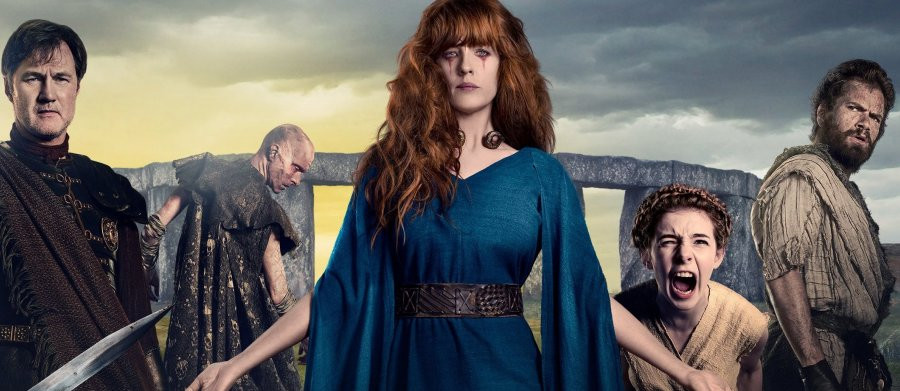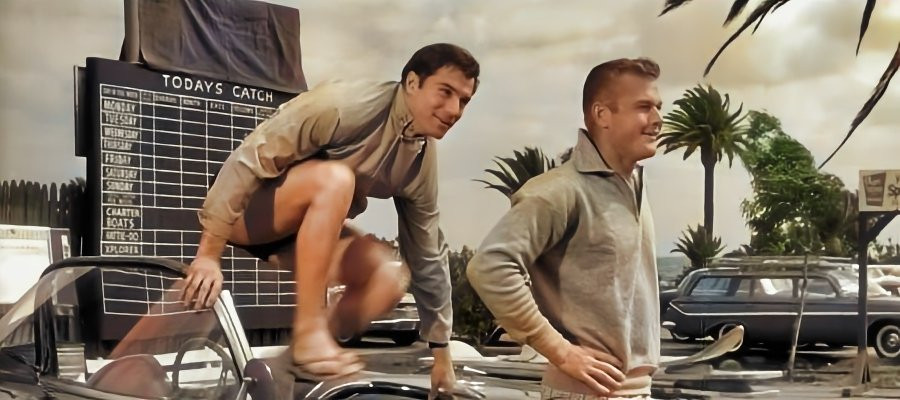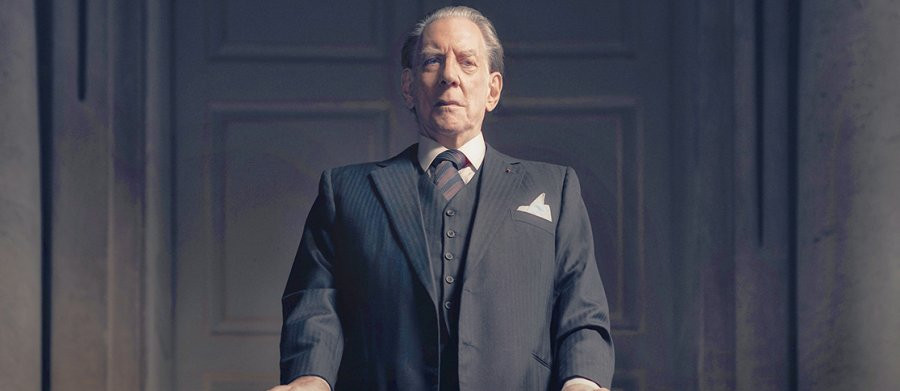
Trust
2018 - United StatesReview: John Winterson Richards
Based very loosely on the real life 1973 kidnapping of J Paul Getty Senior's grandson John Paul Getty III in Italy, Danny Boyle's Trust is poor history but good drama - or rather three dramas.
For there are three distinct strands to the story: the story of the actual kidnapping and the suffering of its victim; the impact on the victim's grandfather - which is presented here as very little, only an excuse to pry into his allegedly strange domestic life; and the impact on the victim's immediate family, the investigation, and the eventual payment of the ransom.
The first strand is the weakest, in spite of some fine performances from the Italian cast, not least because it is the most inaccurate.
John Paul Getty III (Harris Dickinson) is presented here as "the Golden Hippie," a handsome young man who could pose for an Early Renaissance fresco of Christ, and is gifted by the writers with appropriately Christlike levels of compassion and sensitivity, with precocious intelligence and artistic talent thrown in for good measure. At this point, the real John Paul Getty III was a spoilt, loutish, bratty teenager, a very expensive high school dropout, with a distinctly churlish look to him.
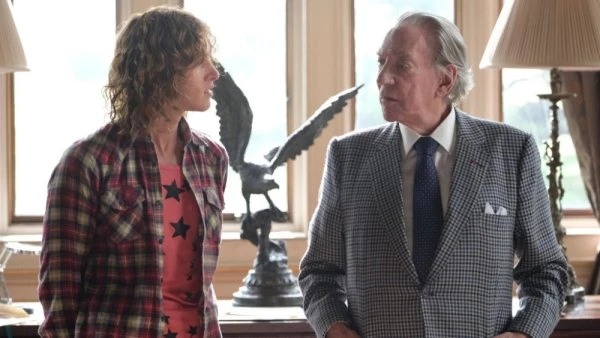
To be fair, it is hardly John Paul's fault that he is remembered for becoming famous when going through a phase of life most of us would prefer forgotten, nor can the producers be blamed for going with a more sympathetic version.
However, it is but a short step from portraying him as more mature than he really was to portraying him as more in control of events than he really was. It might have been better to remember that this was a confused child going through a terrifying experience.

Instead it is suggested that he staged the initial kidnapping himself, only to have it taken over by the 'Ndrangheta, the Calabrian Mafia. While this was a possibility taken quite seriously on the basis of the limited evidence available at the time, it is no longer sustainable. Instead of bonding with some of his captors, as 'Trust' suggests, and even collaborating with them, young John Paul was treated with great cruelty.
It should not be forgotten how serious this was. Kidnapping, for both financial and "political" gain, was something of an industry in Italy at the time. Victims were often murdered, most infamously Aldo Moro, twice Prime Minister of Italy, found left dead in the boot of a car.
If the unhappy John Paul III is pictured as a Jesus figure, his grandfather, the focus of the second strand, is presented as the Devil.

Donald Sutherland has enjoyed a particularly rich career: breaking through in comedy roles in 'Kelly's Heroes'and the film version of 'MASH,' he went on to become a very successful dramatic leading man in the likes of 'Klute' and 'Ordinary People' before demonstrating how chillingly effective he could be as a villain from 'The Eye of the Needle' to 'The Hunger Games.'
In many ways his role as the patriarch in 'Dirty Sexy Money,' an attempt to revive the Dallas formula in New York in the 21st Century that ran for a couple of seasons, was ideal preparation for his role as J Paul Getty Senior. The difference is that his character in that was a man who hid dark secrets behind an affable facade, while in Trust he plays Getty with relish as a man who takes positive pleasure in showing his power over others openly by hurting them.
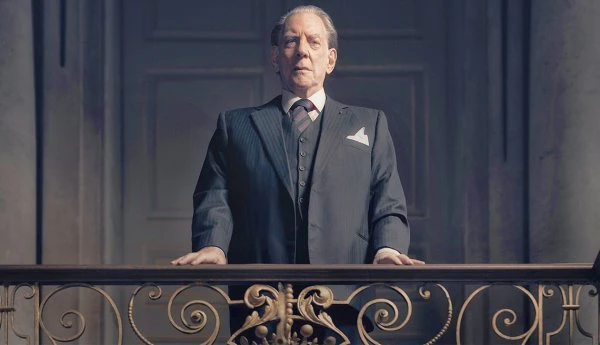
The Getty family have every right to be offended by this. The real J Paul Getty Senior was, like many financially very successful men, ruthless, emotionally guarded, vain, a compulsive womanizer, and well aware of the value of a penny. This does not mean he was a sadist, as Trustimplies.
Even his initial refusal to pay his grandson's ransom, which is meant to shock us, was an entirely defensible decision. He was right that to do anything else would have put the rest of his family at risk. He was also right to look at the situation as a basic business negotiating problem. A man does not make that sort of money in the first place without understanding that one does not simply give in immediately to whatever is asked. His actions may therefore have increased his grandson's chances of survival.
Above all, he almost certainly did not have that sort of disposable cash to hand. Famously rich people rarely do. They become and remain famously rich because they are good at putting their money to work for them.
The whole point of the Trust of the title is that it set up an independent legal relationship. Getty Senior might have been liable to litigation if he had not charged interest on a loan from the Trust to his own son for the benefit of his grandson. This point is not made clearly, because it is more in keeping with the portrayal of Getty Senior in the show to imply he was too mean to pay.
Getty Senior's sons are also depicted unfairly. Gordon was already an accomplished composer who had forged a successful career independently of his father. He went on to become a very effective manager of his father's legacy. While Trust is correct about John Paul Junior, Paul's father, having personal problems, it ignores the other side of his character: he is remembered today as a highly respected philanthropist and bibliophile who was given a Knighthood of the Order of the British Empire for his contributions to his adopted country.
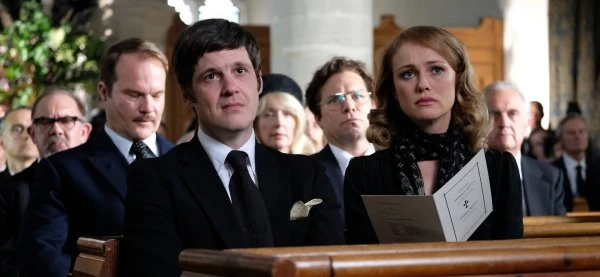
Both these strands raise serious questions about the ethics of the depiction of living or recently deceased people in dramas that purport to be based on facts.
The third strand, which deals with the effect of the kidnapping on John Paul's immediate family and its eventual resolution, does not raise these questions because the principal characters are presented far more sympathetically. It is also the strongest strand in dramatic terms.
It benefits from some beautiful location work in Italy - especially Rome and Tivoli, which is used as the venue for a meeting that never took place, and could never have taken place, between Getty Senior and the chief of the 'Ndrangheta, but which was dramatically necessary. The producers seemed to have secured good access to some particularly photogenic sites which they exploited brilliantly. Italy always looks good and it has rarely looked better than here.
Yet the real reason for the success of the third strand is the presence of two bona fide first division film stars - even if they are first division in status and skill rather than current commercial standing.
To say Hilary Swank is excellent in everything implies a misuse of the word excellent. Nevertheless she is. Here she is the personification of the courage and determination of motherhood in defence of her child. Yet she also has to come to terms with the uncomfortable truth that the situation may be due in part to bad choices she made in her own life.
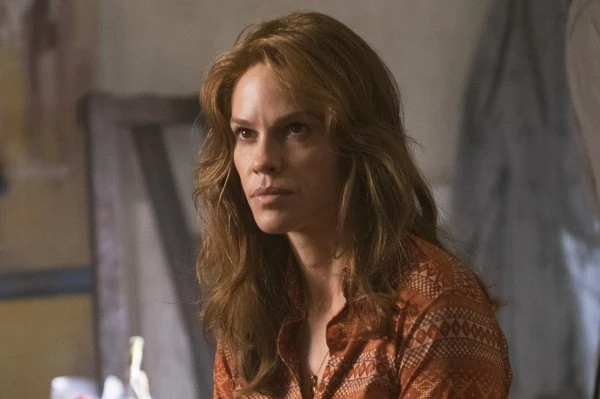
Even better is Brendan Fraser as Getty Senior's "handyman" James Fletcher Chace. From his early success in 'George of the Jungle' on, Fraser showed he had the talent and the screen presence to build an outstanding career as a leading man ...only to disappear, almost without trace, further proof that in Hollywood you are only as big as your last project.
His acclaimed performance in Trusthas led to talk of a "Brenaissance." It would be well deserved it that proves to be the case because his Chace is a truly great character. The two episodes he dominates, casually breaking the fourth wall and hinting at the apparent omniscience of the perfect "fixer," are by far the best. He exudes amiability and reliability, while hinting at a darkness beneath. At one point, hoping sincerely that the returned John Paul III will have a happy life, he glances at the camera: "Google it." There is a sudden chill in the air.
He has real chemistry with Swank. At one point the pair of them are dressed in white in a white car in a snowstorm - because Italians are operatic - and we wonder if these two damaged people might be the solution to each other's problems. Sadly, we never find out.
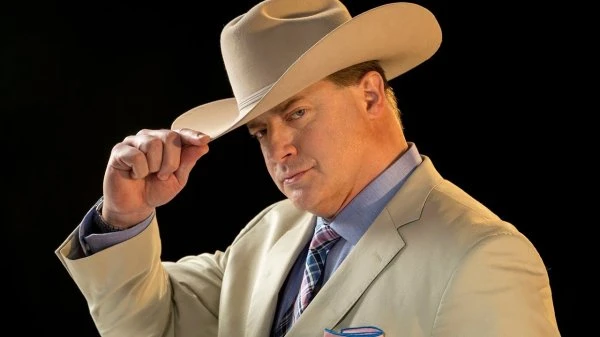
Although it is a "miniseries" in its own right, the intention is that Trust will be part of a bigger saga about the House of Getty. A prequel is therefore planned dealing with the rise of Getty Senior in the 1930s. Presumably this means different characters, different actors, and essentially a different show. If so, the producers are missing the big opportunity here, because what most who enjoyed Trust really want is 'The Further Adventures of James Fletcher Chace.'
Seen this show? How do you rate it?
Seen this show? How do you rate it?
Published on February 4th, 2020. Written by John Winterson Richards for Television Heaven.


